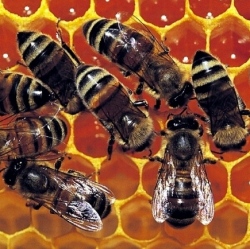
Neonicotinoid pesticides are causing damage to a range of beneficial species and are a key factor in the decline of bees. Researchers, who have carried out a four-year review of the literature, say the evidence of damage is now "conclusive". The scientists say the threat to nature is the same as that once posed by the notorious chemical DDT.
Manufacturers say the pesticides are not harming bees or other species. Neonicotinoids were introduced in the early 1990s as a replacement for older, more damaging chemicals. They are a systemic insecticide, meaning that they are absorbed into every cell in a plant, making all parts poisonous to pests. But some scientists have been concerned about their impact, almost since the moment they were introduced.
Much of the worry has surrounded their effects on bees. There’s been a well documented, global decline in these critical pollinators. Many researchers believe that exposure to neonicotinoids has been an important destabilising factor for the species.
